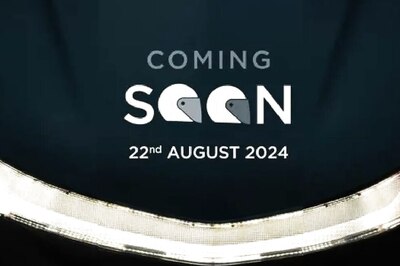
views
Eli Lilly and Co on Tuesday aimed to ease investor concerns about its COVID-19 antibody treatment after a trial of the therapy failed to show a benefit in hospitalized patients.
Lilly said it remains optimistic about ongoing trials for the experimental COVID-19 antibody therapy. The drugmaker also said issues raised by U.S. regulators after an inspection of one of its manufacturing facilities do not effect the quality or safety of the treatment.
Reuters reported earlier this month that U.S. Food and Drug Administration inspectors found serious quality control problems at the plant preparing to manufacture the antibody therapies.
The company said it remains confident in the ability of the single antibody treatment to prevent progression of disease for those earlier in the course of COVID-19.
“While the results in hospitalized patients were disappointing, we don’t expect this to affect our chances of success in prophylaxis (prevention) or in early treatment,” Chief Scientific Officer Daniel Skovronsky said on a conference call.
Lilly said it intends to request emergency use authorization (EUA) from the FDA for its dual antibody therapy as soon as November. It has already applied for an EUA for the single antibody treatment for use in mild to moderate COVID-19 patients and for its arthritis drug baricitinib.
U.S. President Donald Trump has been touting the antibody therapies after receiving a similar treatment from Regeneron Pharmaceuticals Inc during his own recent bout with COVID-19.
The Indianapolis-based drugmaker also reported a lower-than-expected quarterly profit in part due to pricing pressure on some of its major drugs, including diabetes treatment Trulicity, and its shares fell more than 5%.
Third-quarter earnings of $1.54 per share missed analysts’ average estimate of $1.71, according to IBES estimates from Refinitiv.
The company pointed to higher rebates to insurers to ensure Trulicity’s market share and a larger portion of sales coming from the U.S. Medicaid program, which pays less than commercial insurers for the medicine. But Lilly maintained its earnings forecast for the full year.
Trulicity sales of $1.11 billion for the quarter was below the Wall Street consensus estimate of $1.27 billion, according to brokerage Mizuho.
Lilly said it expects 2020 COVID-19 research and development expense to be roughly $400 million.
Revenue rose 5% to $5.74 billion in the quarter, below analyst forecasts of $5.88 billion.
Lilly said it still anticipates 2020 revenue of $23.7 billion to $24.2 billion.
It cautioned that achieving the higher end of the range would likely require moderate revenue from potential COVID-19 treatments.
Disclaimer: This post has been auto-published from an agency feed without any modifications to the text and has not been reviewed by an editor
Read all the Latest News and Breaking News here




















Comments
0 comment